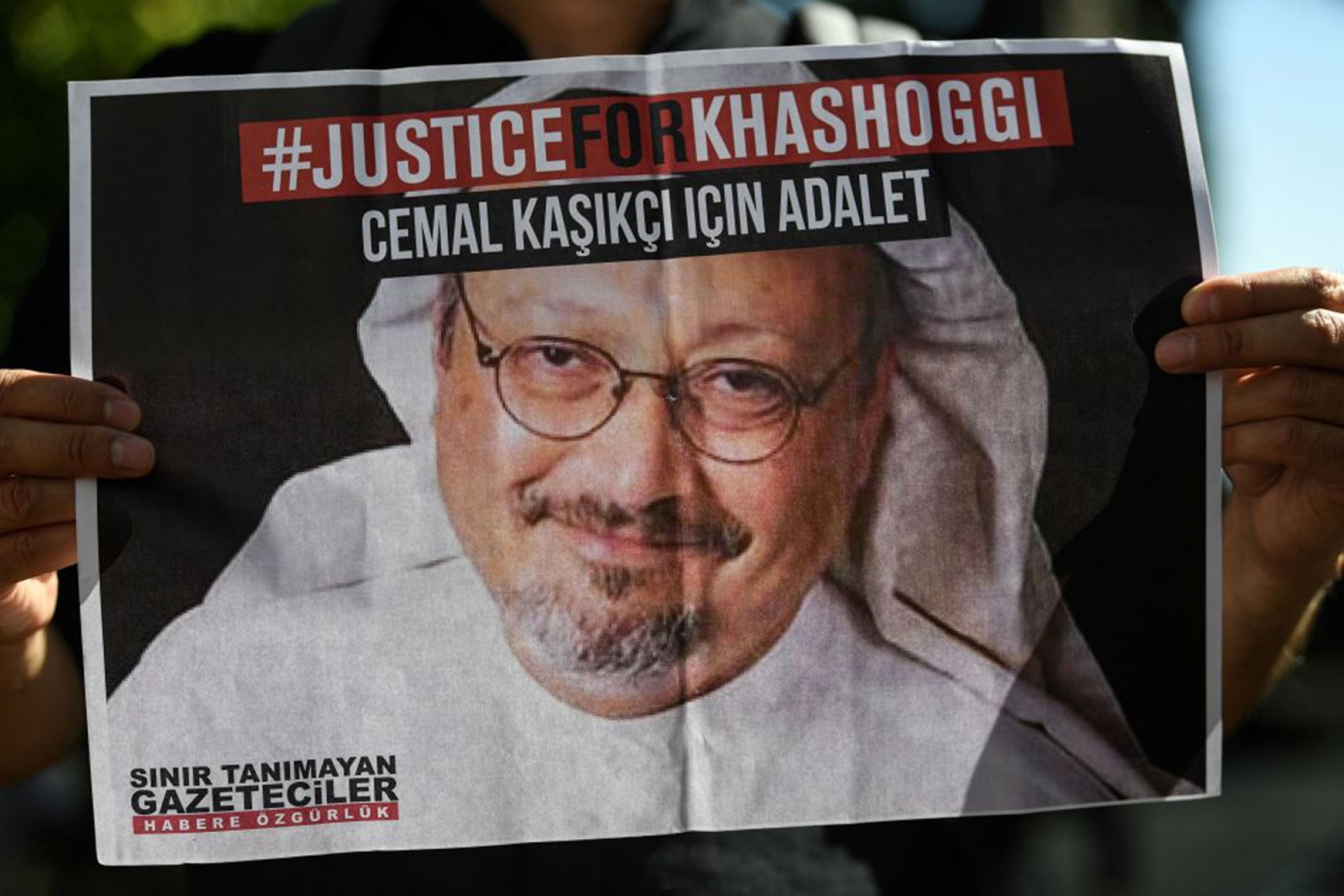
A tale of two autocrats (and their different treatments by the US)
- Vladimir Putin and Mohammed bin Salman are responsible for wars – Ukraine and Yemen respectively – that have displaced millions and killed tens of thousands. As the United States castigates the one, it is making nice with the other. How does Washington choose?
At the Group of 20 summit of world leaders in late November 2018, a beaming Vladimir Putin walked up to Saudi Arabia’s Crown Prince Mohammed bin Salman, high-fived him and then shook his hand heartily.
The weird moment of bromance was captured and quickly went viral. The de facto ruler of what is arguably the world’s most important oil producer was then at the nadir of his international standing. The Turkish government had acknowledged that its intelligence service bugged the Saudi consulate in Istanbul and so taped the whole planning and execution – which included on-site torture and dismemberment – of Saudi dissident journalist Jamal Khashoggi, who was also a columnist with The Washington Post.
Despite the best efforts of then US president Donald Trump, his top diplomat Mike Pompeo, Trump’s son-in-law Jared Kushner, who was the crown prince’s best pal, to play down the murder, US intelligence had obtained hard evidence implicating the highest level of the Saudi government. Everyone knew who really stood accused.
Back then, Putin gave Salman diplomatic cover at the G20. Today, he is offering, inadvertently, an even bigger prize, the prince’s rehabilitation and his country’s return to the fold of respectable nations.

That’s because the United States and the European Union need to dry up Russia’s oil revenue as part of their economic war to counter Moscow’s invasion of Ukraine.
They need Saudi oil, not just to substitute for Russian oil, but to help fight the highest global inflation in decades, partly because of high energy prices.
Joe Biden’s trip to Riyadh next month, which will no doubt be used by the Saudis to return Salman to the status of international statesman, is especially embarrassing. Just weeks into his presidency, Biden sent his top Middle East adviser Brett McGurk to tell Salman personally that his government had lost the trust of Washington and it would be treated as a “pariah”.
That threat was already made when Biden was running for president; now he was carrying it out.
Well, that was then. Some have argued that given the international situation, the West has no choice but to make nice with the Saudis.
Xi tells Putin all parties should ‘promote a solution’ to the Ukraine crisis
They are right. But then, they and the US must forfeit any right to claim the moral high ground.
There are just too many similarities between Putin and Salman. Both autocrats are responsible for wars – Ukraine and Yemen respectively – that have displaced millions and killed tens of thousands.
It’s both fascinating and revolting to see how the Western media have been covering Ukraine 24/7 while reporting much less frequently on Yemen from the civil war’s inception in 2014 to the present. Instead, Western journalists were more preoccupied with Khashoggi’s murder and the Saudi connection, newsworthy as they were.
They just prove Stalin’s adage: “One death is a tragedy, a million deaths are a statistic.” That is especially so when the million happened to have black skin.
Paradoxically, the US has supplied weapons, logistical support and intelligence to Saudi Arabia and the United Arab Emirates to prosecute their merciless war in Yemen, which began as a civil war but was internationalised into a proxy war against Iran. Likewise, the US has supplied weapons, logistical support and intelligence to Ukraine – to fight Putin.
Denial notwithstanding, Ukraine is looking increasingly like a typical Western proxy war, this one against Russia.
That’s the thing about being the world’s hegemon; you end up being involved in every dirty war, or helping to instigate and prolong one. But claiming high morality, human rights and humanitarianism is just too rich to take.

